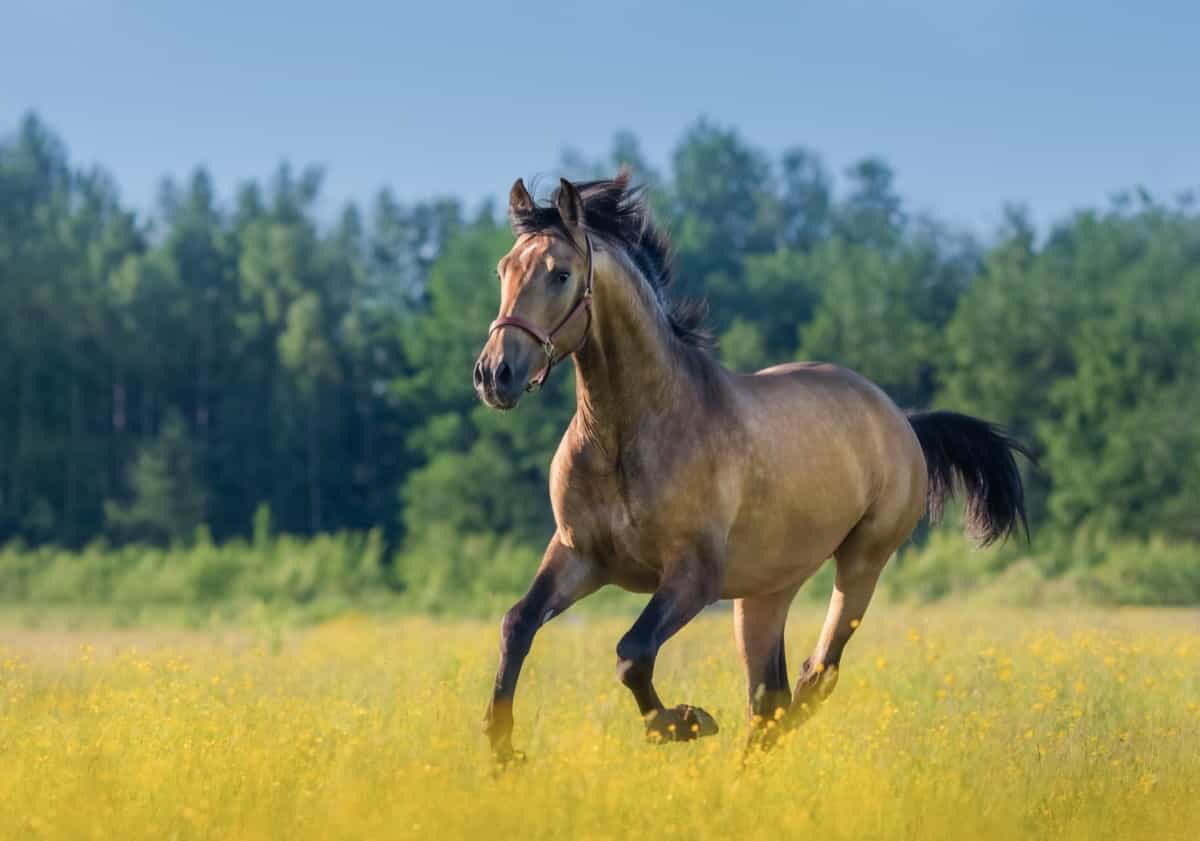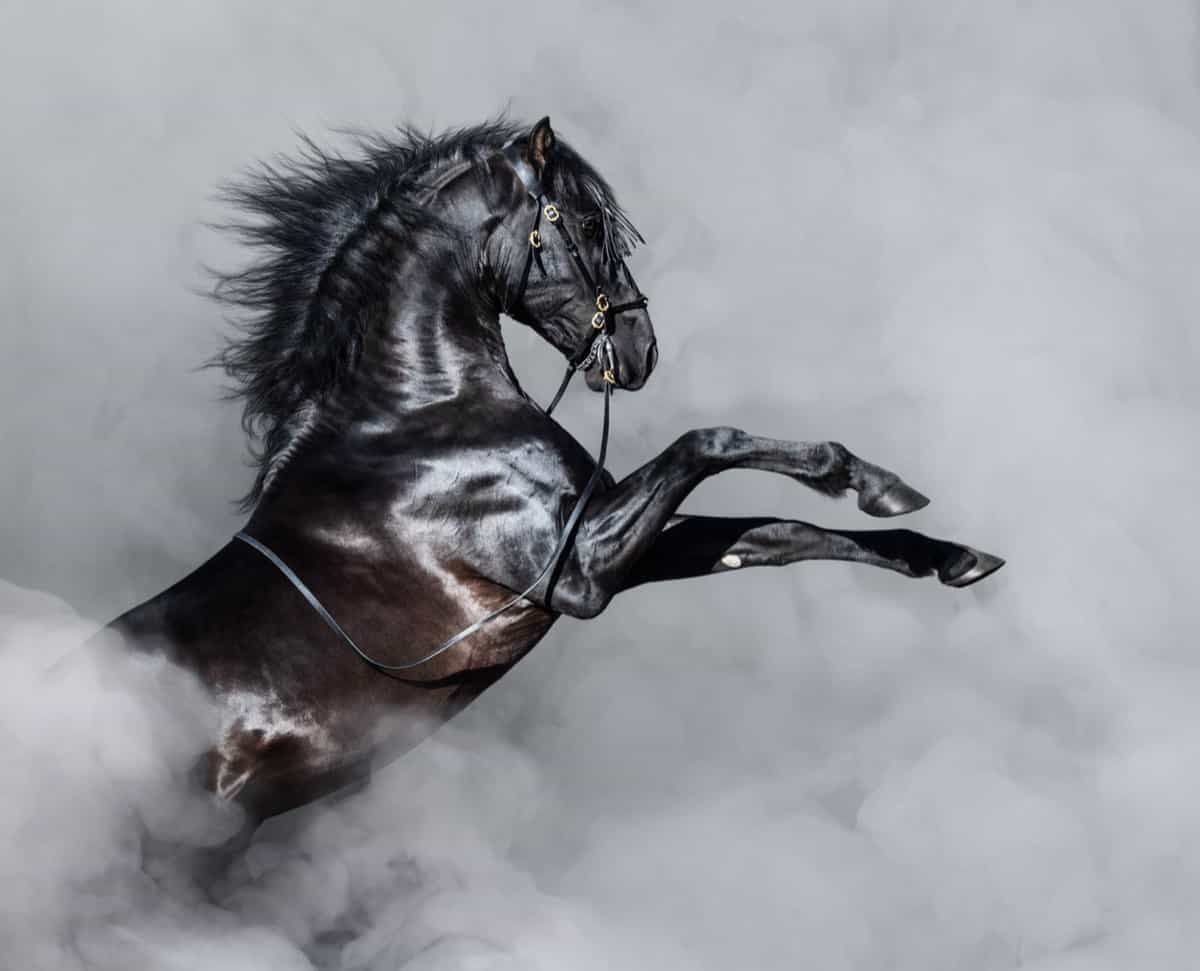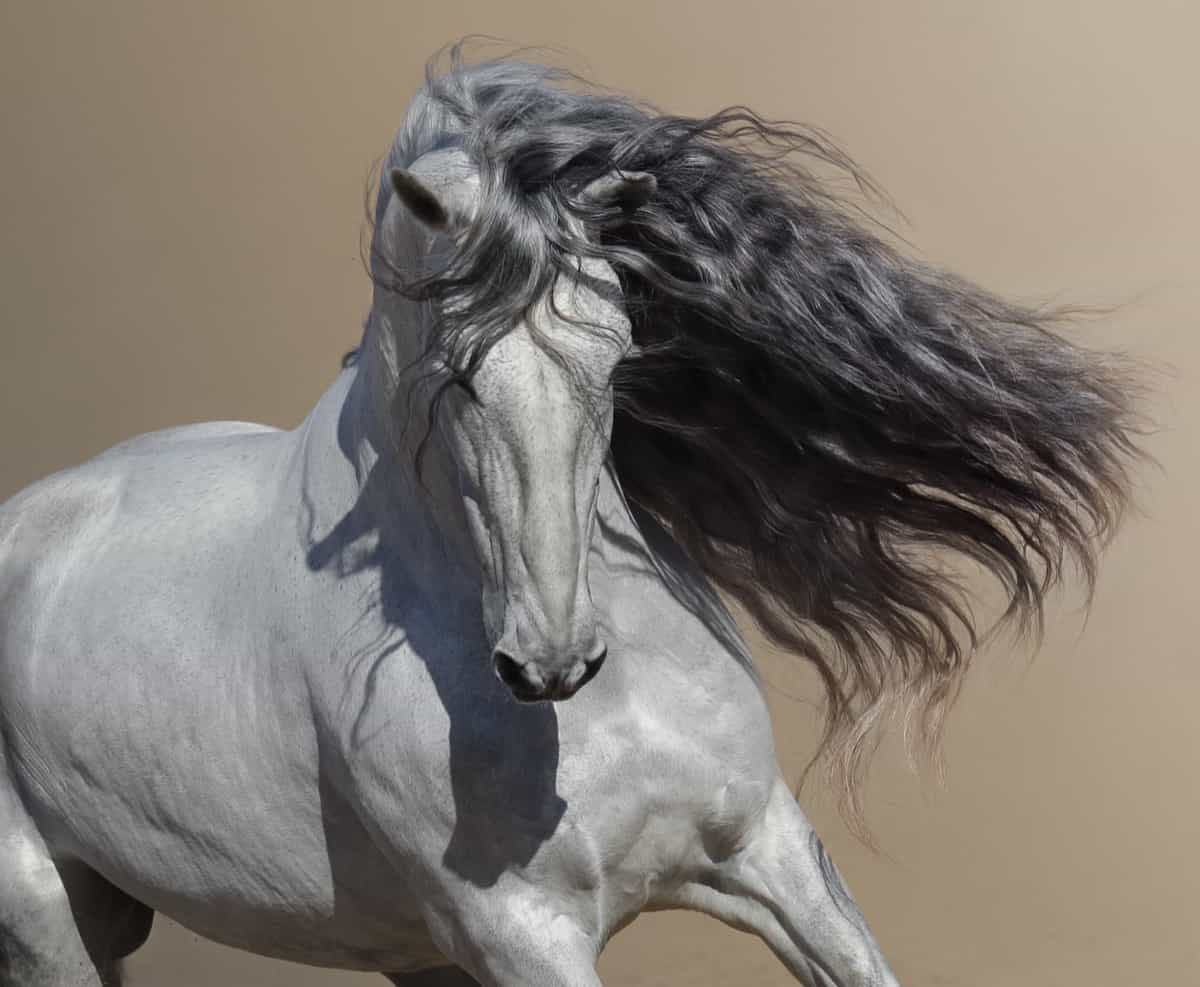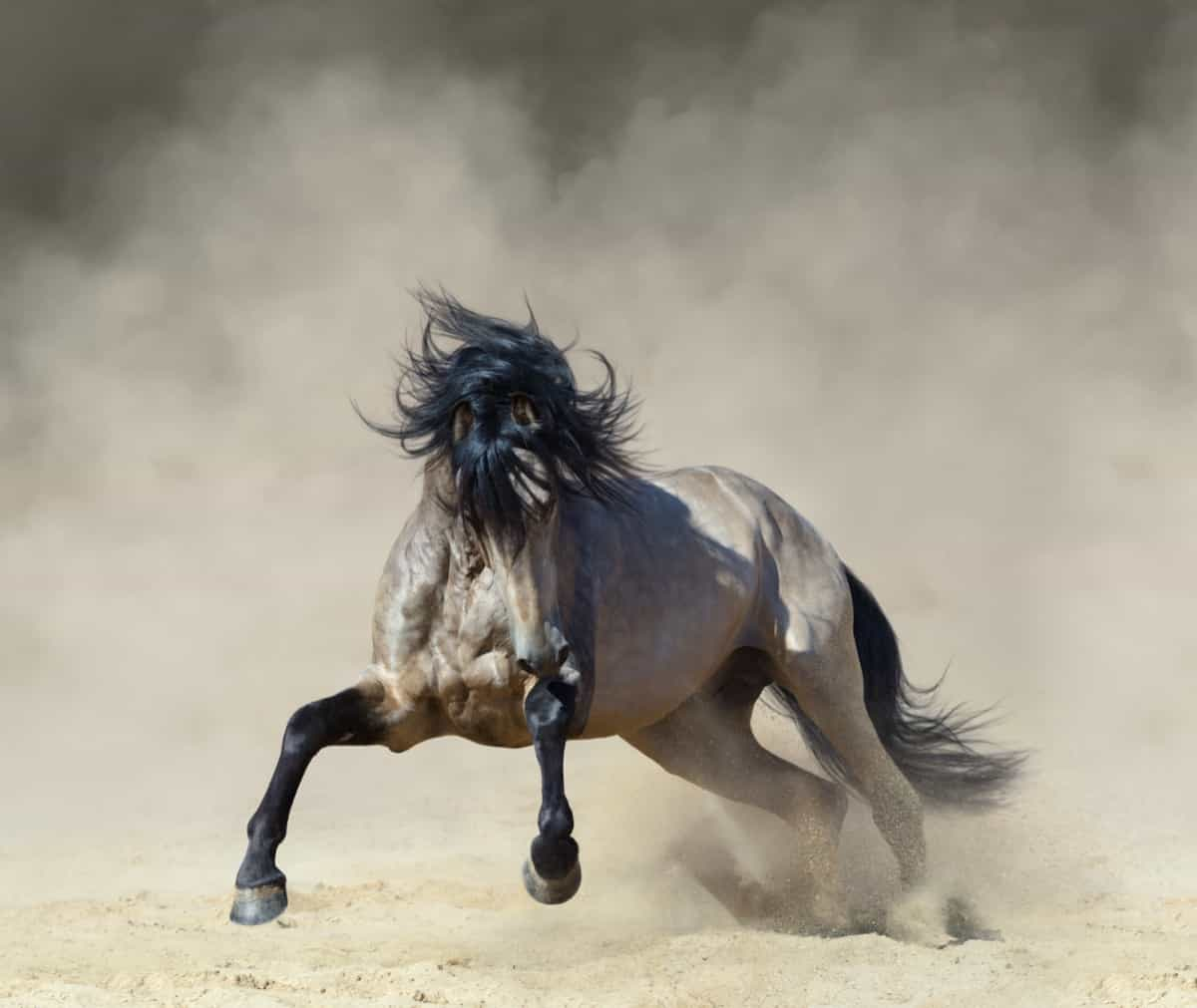Andalusian horses, known for their noble demeanor and striking appearance, have a rich history that dates back to the Iberian Peninsula. These horses are celebrated for their versatility in various riding disciplines, making them a favored breed among equestrians. Andalusian horse care is paramount for maintaining their health and well-being, encompassing a range of practices from diet to grooming. Training an Andalusian horse requires a gentle approach, taking advantage of their intelligent and willing temperament.

The Andalusian horse price can vary widely, influenced by lineage, training, and conformation factors. Buying an Andalusian horse is a significant investment, not just in terms of cost but also in the commitment to their care and training. The breed’s characteristics, including their distinct color variations and elegant conformation, contribute to their allure in competitions and horse shows worldwide.
All You Need to Know About Andalusian Horse
Overview and History
The history of the Andalusian horse is rich with tradition, spanning centuries and originating from the Iberian Peninsula, where they were esteemed by nobility. This breed has been instrumental in shaping other horse breeds and has left a notable mark on European horse breeding practices.
The preservation of Andalusian horse genetics has been a priority, ensuring the breed’s purity and the continuation of its heritage. Andalusian horse preservation efforts have contributed to maintaining the breed’s distinctive qualities, including their renowned beauty and athleticism, showcased in Andalusian horse shows and competitions globally.
Physical Characteristics
Andalusian horses are known for their muscular build, strong limbs, and elegant arched neck, which contribute to their majestic appearance. The typical height of an Andalusian horse ranges from 15.2 to 16.2 hands, with their weight varying between 900 to 1,100 pounds. Their conformation suits a range of riding disciplines, from dressage to show jumping, reflecting the breed’s versatility and athleticism. Andalusian horse conformation is a key factor in their performance, making them highly sought after in the equestrian community.
Temperament and Behaviour
The temperament of Andalusian horses is characterized by their calm, docile nature and eagerness to please, making them highly trainable and good-natured companions. Their intelligent and sensitive demeanor requires a thoughtful approach to Andalusian horse training, ensuring positive reinforcement and consistency. Understanding Andalusian horse temperament is essential for effective training and handling, fostering a strong bond between horse and rider.
Breeding and Genetics
Andalusian horse breeding is carefully managed to preserve the breed’s unique qualities, including their striking appearance and gentle temperament. The lineage of these horses is closely monitored, with Andalusian horse genetics playing a crucial role in maintaining breed standards and ensuring the health and vitality of future generations. The lineage of Andalusian horses exemplifies centuries of deliberate breeding aimed at refining their innate grace and athletic prowess.
Training and Handling
Training an Andalusian horse involves patience, respect, and understanding of their learning style. Andalusian horse training tips often emphasize building trust and establishing clear communication through consistent and gentle methods. These horses excel in various riding disciplines thanks to their versatility and adaptability, making them well-suited to amateur and experienced riders. Effective training and handling are key to unlocking the full potential of Andalusian horses in equestrian sports and activities.
In case you missed it: Ultimate Guide to Thoroughbred Horse: Breed Overview, Characteristics, Diet, Care, Lifespan, and Price

Diet and Nutrition
The diet of an Andalusian horse is crucial for their overall health and performance, requiring a balanced intake of essential nutrients. Andalusian horse diet and nutrition plans are tailored to meet their specific needs, considering their activity level, age, and health status. Proper feeding practices ensure that these horses maintain optimal weight and condition, supporting their active lifestyle and the demands of training and competition. Regular monitoring and adjustments to their diet help prevent health issues and contribute to the longevity and well-being of Andalusian horses.
Health and Veterinary Care
Like any breed, Andalusian horses are susceptible to certain health issues, with regular veterinary care being essential to identify and treat these conditions early. Common health concerns include colic, laminitis, and respiratory issues, which can be managed promptly and appropriately.
Proactive steps like vaccinations, deworming, and dental maintenance are crucial for upholding the well-being of Andalusian horses. Owners must monitor their horses for any signs of discomfort or illness, ensuring that Andalusian horse health remains a top priority to support their longevity and quality of life.
Competitions and Uses
Andalusian horses are renowned for their versatility and excel in various equestrian sporting disciplines. Their natural grace and agility make them exceptional performers in dressage, while their strength and speed are showcased in show jumping and eventing.
Andalusian horse competitions often highlight the breed’s elegance and skill, with Andalusian horse riding disciplines also including traditional Spanish equestrian sports, reflecting the breed’s rich heritage. Andalusian horses’ versatile nature and disposition render them ideal for riders across all skill levels, from novices to seasoned competitors, enhancing their broad popularity within the equestrian community.
Care and Maintenance
Andalusian horses’ grooming and daily care are integral to their well-being and appearance. Consistent grooming maintains the optimal appearance of their coat, mane, and tail while allowing for timely health checks for issues like cuts, sores, or infections. Proper hoof care, including regular trimming and shoeing, prevents lameness and other foot-related problems.
In case you missed it: Ultimate Guide to Friesian Horse: Overview, Characteristics, Diet, Care, Lifespan, and Price

Andalusian horse maintenance extends beyond grooming to include a suitable living environment with clean, spacious stables and access to pasture, allowing these horses to thrive. The commitment to daily care and maintenance ensures that Andalusian horses remain healthy, happy, and ready to perform at their best in any discipline.
In case you missed it: Buckskin Horse Facts: Breed Profile, Characteristics, Price, Lifespan, Diet, Uses, Training, and Care

Conclusion
The Andalusian horse, with its illustrious heritage and striking presence, embodies equine grace and versatility, requiring dedicated care, expert training, and a deep understanding of its needs to flourish in competitive arenas and as a cherished companion. Their enduring legacy is a testament to the centuries-old tradition of breeding and nurturing these magnificent horses.
- Feed Your Flock for Less: Top 10 Tips to Save on Chicken Feed
- Ultimate Guide to Ossabaw Island Hog: Breeding, Raising, Diet, and Care
- Hatching Answers: The Top 10 Reasons Your Chickens Aren’t Laying Eggs
- Eggs and Economics: Breaking Down the Cost of Raising Backyard Chickens
- Defend Your Greens: Proven Methods to Keep Iguanas Out of Your Garden
- Ultimate Guide to Cinnamon Queen Chicken: A Comprehensive Guide for Beginners
- Ultimate Guide to California Tan Chicken: Breeding, Raising, Diet, Egg-Production and Care
- Ultimate Guide to Marsh Daisy Chicken: Breeding, Raising, Diet, and Care
- 10 Types of Chicken Farming Businesses You Can Start for Profits